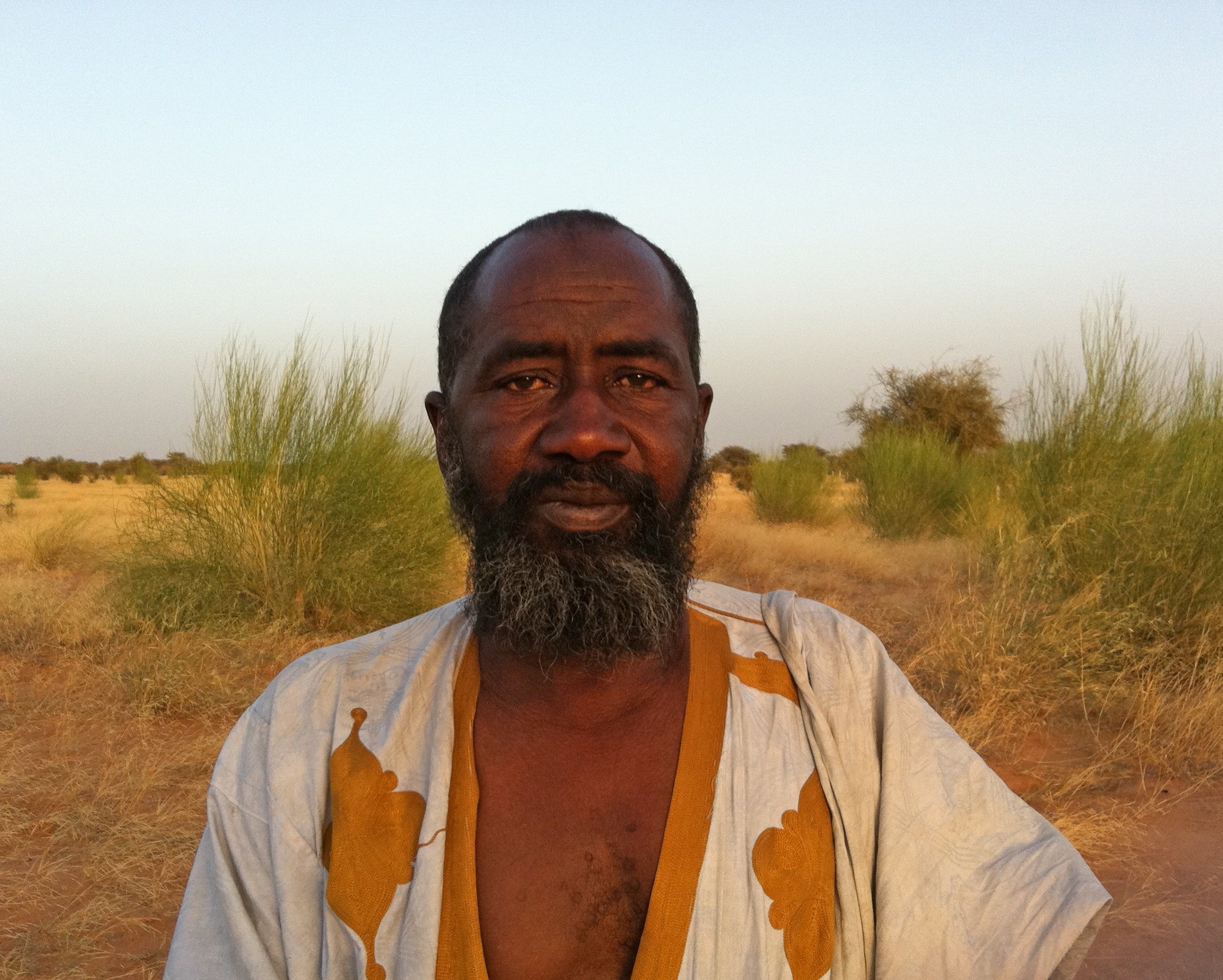

Fighting back the desert in Mauritania

By Mohamed A. Boussery
Moctar Ould Hamouda remembers as a child gathering the gum of the acacia trees that surrounded his village of Diawlé, in the southwestern Mauritanian department of Rkiz, where he was born in 1958 and still lives.
"Life in Diawlé was beautiful and the landscape was picturesque," he reminisces nostalgically. "The whole area was covered with vegetation, where our animals grazed peacefully throughout the year. A dense forest of gum trees hid the horizon. During the harvest season, people went out early in the morning and only returned late at night, with several pounds of gum under their arm. This product was very coveted and produced a large income for the village’s families."
But decades of persistent, severe drought destroyed the vegetation and decimated the herds of livestock. Sand dunes buried homes and fields. “Our small hamlet’s way of life was completely upended and our livelihoods were severely altered. The men all emigrated in search of work,” says Moctar.
Two years ago, Diawlé’s inhabitants took matters into their own hands -- literally. With support from a joint UN programme that provided seeds, inputs and training, the villagers reforested a perimeter of gum trees, stabilized the dunes, set up nurseries and established grazing areas for their livestock.
“With our own hands we stopped the advance of the sand and created an environment conducive to vegetable crops and fodder,” says Moctar proudly, adding that the village women were the first to invest in vegetable gardening. They began havesting and selling okra twice a week and quickly made a profit. “The men, returning to the village, saw this and decided to get involved themselves, abandoning all thoughts of emigrating,” he explains.
Diawlé is one of 157 villages targeted by an MDG-F-supported programme to promote environmental sustainability in three areas of Mauritania struggling against desertification and a severely degraded ecosystem. As elsewhere in the world, climate change in Mauritania takes the heaviest toll on its poorest citizens, an impact the MDG-F is dedicated to combating.
The aim of the programme is to ensure that environmental issues are taken into account in Mauritania’s efforts to fight poverty. This means encouraging villages to sustainably manage their natural resources, and ensuring access to clean water and a healthy environment by promoting good hygiene and sanitation practices.
Reclaiming land from the desert
The results have been remarkable. From a baseline of almost zero, the vegetation cover in the targeted areas has experienced a spectacular regeneration. Working collaboratively, and with training and supervision by 30 NGOs, villagers have regenerated 600 hectares of gum trees and 182 hectares of mangroves, and have restored 5,500 hectares of degraded land. More than 430 hectares of sand dunes have been stabilized, 295 hectares have been set aside as pasture, and three forests are being collectively managed.
The joint programme is also strengthening national capacity to better deal with environment and poverty issues through mainstreaming environmental considerations into public policy, revising the framework law on the environment, and introducing new internnational evaluation instruments.
The Water and Sanitation component of the programme has provided sustainable access to safe drinking water for 28,000 people, mapped the quality of drinking water for six of the country’s 13 regions and created a network of 10 laboratories to ensure water quality control. Waste management has improved with the construction of more than 6,500 family latrines and the adoption by 240 villages of healthy personal and household hygiene practices.
Central to all these efforts is the active participation of village inhabitants. In Moctar Ould Hamouda’s village of Diawlé, although plans originally called for one hectare of land to be dedicated to vegetable gardens, the villagers were so motivated that they invested their own resources, expanding the planted areas to 15 hectares.
Living conditions, says Moctar, continue to improve, to the joy and satisfaction of the people. “Today I am very happy to see new life begin in Diawlé. We protected our village and our fields against the dunes. Pastures have experienced an extraordinary regeneration. The local fauna is beginning to rise from the ashes. Our people are waiting impatiently for the young acacia bushes to grow and bear fruit, and so to revive an old tradition: the harvesting of gum."
Working towards environmental sustainability
“Mainstreaming Local Environmental Management in the Planning Process” is a collaboration between the government of Mauritania, village committees, 30 NGOs and seven UN agencies (UNESCO, UNICEF, UNDP, WHO. UNEP, WFP, and FAO).
It is one of 17 MDG-F programmes on the Environment and Climate Change to assist governments around the world achieve Millennium Development Goal #7 of environmental sustainability, and part of the MDG-F’s effort to reduce the impact of climate change on the world’s poorest people.
The MDG-F funds three other programmes in Mauritania in the areas of nutrition, conflict prevention and culture for development.